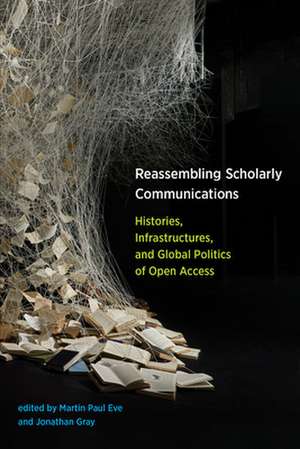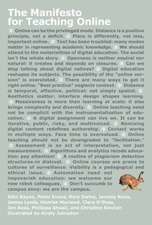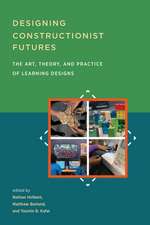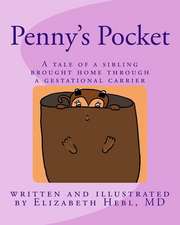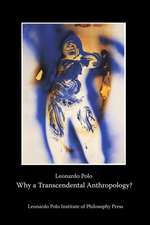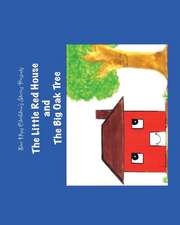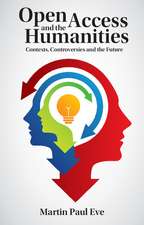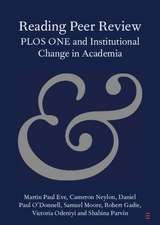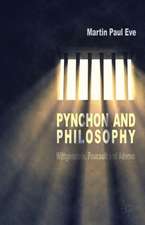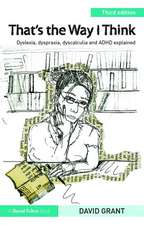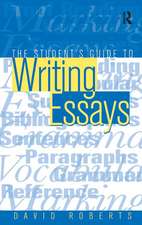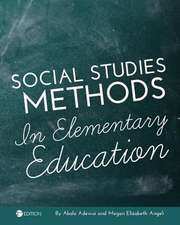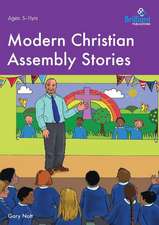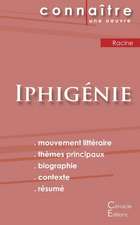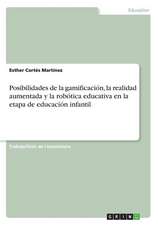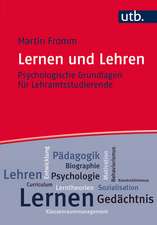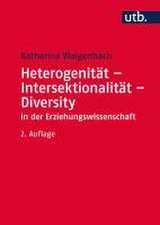Reassembling Scholarly Communications
Autor Martin Paul Eveen Limba Engleză Paperback – 19 oct 2020
Preț: 337.94 lei
Nou
Puncte Express: 507
Preț estimativ în valută:
64.66€ • 67.70$ • 53.51£
64.66€ • 67.70$ • 53.51£
Carte tipărită la comandă
Livrare economică 05-19 aprilie
Preluare comenzi: 021 569.72.76
Specificații
ISBN-13: 9780262536240
ISBN-10: 0262536242
Pagini: 448
Dimensiuni: 228 x 153 x 39 mm
Greutate: 0.89 kg
Editura: MIT Press Ltd
ISBN-10: 0262536242
Pagini: 448
Dimensiuni: 228 x 153 x 39 mm
Greutate: 0.89 kg
Editura: MIT Press Ltd
Notă biografică
Martin Paul Eve is Professor of Literature, Technology, and Publishing at Birkbeck, University of London, and Visiting Professor of Digital Humanities at Sheffield Hallam University.
Jonathan Gray is a Lecturer in Critical Infrastructure Studies in the Department of Digital Humanities at King's College London.
Martin Paul Eve is Professor of Literature, Technology, and Publishing at Birkbeck, University of London, and Visiting Professor of Digital Humanities at Sheffield Hallam University.
Jonathan Gray is a Lecturer in Critical Infrastructure Studies in the Department of Digital Humanities at King's College London.
John Willinsky is Pacific Press Professor of Literacy and Technology at the University of British Columbia. He is the author of Empire of Words: The Reign of the OED and a developer of Open Journals Systems software.
Bruno Latour, a philosopher and anthropologist, is the author of We Have Never Been Modern, An Inquiry into Modes of Existence, Facing Gaia, Down to Earth, and many other books. He coedited (with Peter Weibel) the previous ZKM volumes Making Things Public, ICONOCLASH, and Reset Modernity! (all published by the MIT Press).
Jonathan Gray is a Lecturer in Critical Infrastructure Studies in the Department of Digital Humanities at King's College London.
Martin Paul Eve is Professor of Literature, Technology, and Publishing at Birkbeck, University of London, and Visiting Professor of Digital Humanities at Sheffield Hallam University.
Jonathan Gray is a Lecturer in Critical Infrastructure Studies in the Department of Digital Humanities at King's College London.
Martin Paul Eve is Professor of Literature, Technology, and Publishing at Birkbeck, University of London, and Visiting Professor of Digital Humanities at Sheffield Hallam University.
Jonathan Gray is a Lecturer in Critical Infrastructure Studies in the Department of Digital Humanities at King's College London.
John Willinsky is Pacific Press Professor of Literacy and Technology at the University of British Columbia. He is the author of Empire of Words: The Reign of the OED and a developer of Open Journals Systems software.
Bruno Latour, a philosopher and anthropologist, is the author of We Have Never Been Modern, An Inquiry into Modes of Existence, Facing Gaia, Down to Earth, and many other books. He coedited (with Peter Weibel) the previous ZKM volumes Making Things Public, ICONOCLASH, and Reset Modernity! (all published by the MIT Press).
Jonathan Gray is a Lecturer in Critical Infrastructure Studies in the Department of Digital Humanities at King's College London.
Martin Paul Eve is Professor of Literature, Technology, and Publishing at Birkbeck, University of London, and Visiting Professor of Digital Humanities at Sheffield Hallam University.
Cuprins
Part I: Colonial Influences Chapter 1. Epistemic Alienation in African Scholarly Communications: Open Access as a Pharmakon
Chapter 2. Scholarly Communications and Social Justice
Chapter 3. Social Justice and Inclusivity: Drivers for the Dissemination of African Scholarship
Chapter 4. Can Open Scholarly Practices Redress Epistemic Injustice?
Part II: Epistemologies
Chapter 5. When the Law Advances Access to Learning: Locke and the Origins of Modern Copyright
Chapter 6. How Does a Format Make a Public?
Chapter 7. Peer Review: Readers in the Making of Scholarly Knowledge
Chapter 8. The Making of Empirical knowledge: Recipes, Craft, and Scholarly Communication
Part III: Publics and Politics
Chapter 9. The Royal Society and the Non-Commercial Circulation of Knowledge
Chapter 10. The Political Histories of UK Public Libraries and Access to Knowledge
Chapter 11. Libraries and their Publics in the United States
Chapter 12. Open Access, 'Publicity', and Democratic Knowledge
Part IV: Archives and Preservation
Chapter 13. Libraries, Museums, and Archives as Speculative Knowledge Infrastructure
Chapter 14. Preserving the Past for the Future: Whose Past? Everyone's Future
Chapter 15. Is There a Text in These Data? The Digital Humanities and Preserving the Evidence
Chapter 16. Accessing the Past, or Should Archives Provide Open Access?
Part V: Infrastructures and Platforms
Chapter 17. Infrastructural Experiments and the Politics of Open Access
Chapter 18. The Platformization of Open
Chapter 19. Reading Scholarship Digitally
Chapter 20. Towards Linked Open Data for Latin America
Chapter 21. The Pasts, Presents, and Futures of SciELO Part VI: Global Communities
Chapter 22. Not Self-Indulgence, but Self-Preservation: Open Access and the Ethics of Care
Chapter 23. Towards A Global Open-Access Scholarly Communications System
Chapter 24. Learned Societies, Humanities Publishing, and Scholarly Communication in the UK
Chapter 25. Not all Networks: Toward Open, Sustainable Research Communities
Chapter 2. Scholarly Communications and Social Justice
Chapter 3. Social Justice and Inclusivity: Drivers for the Dissemination of African Scholarship
Chapter 4. Can Open Scholarly Practices Redress Epistemic Injustice?
Part II: Epistemologies
Chapter 5. When the Law Advances Access to Learning: Locke and the Origins of Modern Copyright
Chapter 6. How Does a Format Make a Public?
Chapter 7. Peer Review: Readers in the Making of Scholarly Knowledge
Chapter 8. The Making of Empirical knowledge: Recipes, Craft, and Scholarly Communication
Part III: Publics and Politics
Chapter 9. The Royal Society and the Non-Commercial Circulation of Knowledge
Chapter 10. The Political Histories of UK Public Libraries and Access to Knowledge
Chapter 11. Libraries and their Publics in the United States
Chapter 12. Open Access, 'Publicity', and Democratic Knowledge
Part IV: Archives and Preservation
Chapter 13. Libraries, Museums, and Archives as Speculative Knowledge Infrastructure
Chapter 14. Preserving the Past for the Future: Whose Past? Everyone's Future
Chapter 15. Is There a Text in These Data? The Digital Humanities and Preserving the Evidence
Chapter 16. Accessing the Past, or Should Archives Provide Open Access?
Part V: Infrastructures and Platforms
Chapter 17. Infrastructural Experiments and the Politics of Open Access
Chapter 18. The Platformization of Open
Chapter 19. Reading Scholarship Digitally
Chapter 20. Towards Linked Open Data for Latin America
Chapter 21. The Pasts, Presents, and Futures of SciELO Part VI: Global Communities
Chapter 22. Not Self-Indulgence, but Self-Preservation: Open Access and the Ethics of Care
Chapter 23. Towards A Global Open-Access Scholarly Communications System
Chapter 24. Learned Societies, Humanities Publishing, and Scholarly Communication in the UK
Chapter 25. Not all Networks: Toward Open, Sustainable Research Communities
